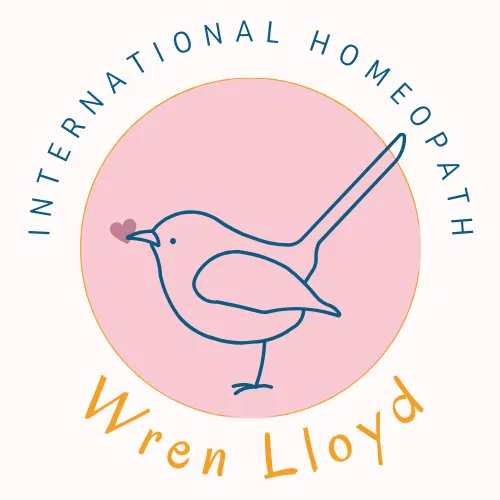
The Trend Toward Holistic and Alternative Medicine
Thankfully, the trend toward holistic and alternative medicine has been gaining traction in both the UK and the USA over the past decade. This is good news for your health as historically, we have been suffering under the influence of ineffective and harmful medications and medical procedures.

a shoutout to Kelly Sikkema @ unsplash
The trend toward holistic alternatives for chronic health problems has been driven by several factors:
— dissatisfaction with conventional treatments,
— increasing awareness and education about holistic health,
— a desire for more natural and preventive approaches,
— the integration of complementary therapies into mainstream healthcare,
— rising research supporting the efficacy of certain alternative treatments,
— greater accessibility through digital health platforms,
— and a cultural shift towards wellness and self-care.
Got a health issue? Book An Appointment With My Team.
Here are the factors that contribute to this growing interest, specific to the UK & USA:
UK Trends in Holistic and Alternative Medicine
Increased Awareness and Acceptance: There has been a significant rise in public awareness and acceptance of holistic health approaches, including practices such as acupuncture, homeopathy, naturopathy, and herbal medicine.
Integration into Conventional Healthcare: The UK has seen a gradual integration of complementary therapies into conventional healthcare settings. For instance, some NHS trusts offer acupuncture and other therapies for pain management and palliative care, and there are homeopathic hospitals still in operation in the UK.
Regulation and Professionalization: The establishment of regulatory bodies like the Complementary and Natural Healthcare Council (CNHC) has helped professionalize the field and increase consumer trust.
Public Demand: Surveys and studies have shown an increasing number of people turning to alternative treatments for chronic conditions, stress management, and overall well-being.
Research and Evidence: Growing research and evidence supporting the effectiveness of alternative therapies have contributed to their acceptance. The Homeopathic Research Institute is very active in the UK.
USA Trends in Holistic and Alternative Medicine
Popularity and Usage: The National Center for Complementary and Integrative Health (NCCIH) reports a steady increase in the use of complementary and alternative medicine (CAM) practices. Practices like yoga, meditation, chiropractic care, and supplements are particularly popular.
Insurance Coverage: There has been a gradual increase in insurance coverage for certain alternative treatments, which has made them more accessible to the general public.
Educational Programs: Many medical schools and institutions now offer courses and training in integrative medicine, reflecting a broader acceptance within the medical community.
Patient-Centred Care: The focus on patient-centred care and personalised medicine has led to a greater acceptance of holistic approaches that consider the whole person—mind, body, and spirit.
Digital Health and Wellness: The proliferation of digital health platforms and wellness apps has made holistic practices more accessible. Online resources, video services, and virtual wellness programs have surged, especially during the COVID-19 pandemic. Many homeopaths moved online and are now working internationally via video calls. Homeopathy lends itself beautifully to this application as it is not a hands-on form of medicine, being more focussed on the patient's description of symptoms than on manipulation of the physical body.
Comparative Analysis
Acceptance and Integration: Both countries show increasing acceptance and integration of holistic practices within their healthcare systems, though the extent and manner of integration vary.
Regulation and Professional Standards: The UK has more centralised regulatory frameworks, while the USA has a more fragmented system with varying state regulations.
Research and Evidence-Based Practice: There is a growing body of research in both countries supporting the use of certain holistic practices, which has helped legitimise and integrate these approaches into mainstream healthcare.
Public Perception and Demand: Public demand for holistic and alternative medicine continues to rise in both countries, driven by a desire for more natural and preventive approaches to health, more awareness of the harm done by suppressive health interventions and of drug side effects and iatrogenic disease [disease caused by medical interventions and drugs].

a shoutout to gaspar zaldo at Unsplash
What Does This Mean For You?
You are more likely to find out about natural alternatives and prevention via word of mouth.
Because you are more likely to know someone who has seen great results, you're more likely to feel confident to try something holistic and natural. You'll will need fewer drugs, experience fewer drug side-effects, and have the opportunity to improve your overall level of health, rather than merely suppress an increasing catalogue of symptoms.
There is a good, environmental impact from taking fewer drugs. Many pharmaceuticals leave residues in our public water systems, and add potentially toxic loads to the environment we live in. The pharmaceutical industry is a large, chemical industry. Using less drugs leads to less chemical waste.
Book An Appointment With My Team.
Sources and References
National Center for Complementary and Integrative Health (NCCIH): Reports and statistics on the use of complementary and integrative health approaches in the USA.
Complementary and Natural Healthcare Council (CNHC): Information on regulation and professional standards for holistic practitioners in the UK.
NHS Choices: Resources and information on the availability and integration of complementary therapies within the NHS.
Peer-Reviewed Journals: Studies and research articles on the effectiveness and use of alternative and holistic medicine practices.

![Wren is an international homeopath based in the UK. She specialises in working with people with autism/ PANS/ PANDAS/ ADHD, mold illness and gut issues internationally.
She has successfully worked with many children and their families worldwide since 2016, using classical homeopathy and homeopathic detox therapy, forming the team International Homeopaths for Autism.
Wren has carried out pioneering work on treating fungi [mold / mould and yeast] illness, especially in the context of autism.
She writes courses for homeopaths and users of homeopathy.](https://storage.googleapis.com/msgsndr/ZXNhQRArkMV3fugK80Gt/media/66917f5166cf9093a2d33917.png)